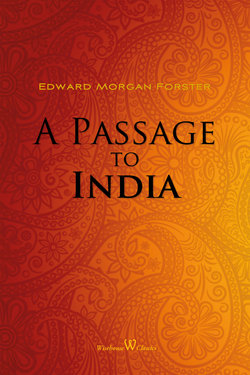Читать книгу A Passage to India - Edward Morgan Forster - Страница 9
ОглавлениеCHAPTER IV
T
he Collector kept his word. Next day he issued invitation cards to numerous Indian gentlemen in the neighbourhood, stating that he would be at home in the garden of the club between the hours of five and seven on the following Tuesday, also that Mrs. Turton would be glad to receive any ladies of their families who were out of purdah. His action caused much excitement and was discussed in several worlds.
“It is owing to orders from the L.G.,” was Mahmoud Ali’s explanation. “Turton would never do this unless compelled. Those high officials are different—they sympathize, the Viceroy sympathizes, they would have us treated properly. But they come too seldom and live too far away. Meanwhile——”
“It is easy to sympathize at a distance,” said an old gentleman with a beard. “I value more the kind word that is spoken close to my ear. Mr. Turton has spoken it, from whatever cause. He speaks, we hear. I do not see why we need discuss it further.” Quotations followed from the Koran.
“We have not all your sweet nature, Nawab Bahadur, nor your learning.”
“The Lieutenant-Governor may be my very good friend, but I give him no trouble. —How do you do, Nawab Bahadur? —Quite well, thank you, Sir Gilbert; how are you? —And all is over. But I can be a thorn in Mr. Turton’s flesh, and if he asks me I accept the invitation. I shall come in from Dilkusha specially, though I have to postpone other business.”
“You will make yourself chip,” suddenly said a little black man.
There was a stir of disapproval. Who was this ill-bred upstart, that he should criticize the leading Mohammedan landowner of the district? Mahmoud Ali, though sharing his opinion, felt bound to oppose it. “Mr. Ram Chand!” he said, swaying forward stiffly with his hands on his hips.
“Mr. Mahmoud Ali!”
“Mr. Ram Chand, the Nawab Bahadur can decide what is cheap without our valuation, I think.”
“I do not expect I shall make myself cheap,” said the Nawab Bahadur to Mr. Ram Chand, speaking very pleasantly, for he was aware that the man had been impolite and he desired to shield him from the consequences. It had passed through his mind to reply, “I expect I shall make myself cheap,” but he rejected this as the less courteous alternative. “I do not see why we should make ourselves cheap. I do not see why we should. The invitation is worded very graciously.” Feeling that he could not further decrease the social gulf between himself and his auditors, he sent his elegant grandson, who was in attendance on him, to fetch his car. When it came, he repeated all that he had said before, though at greater length, ending up with “Till Tuesday, then, gentlemen all, when I hope we may meet in the flower gardens of the club.”
This opinion carried great weight. The Nawab Bahadur was a big proprietor and a philanthropist, a man of benevolence and decision. His character among all the communities in the province stood high. He was a straightforward enemy and a staunch friend, and his hospitality was proverbial. “Give, do not lend; after death who will thank you?” was his favourite remark. He held it a disgrace to die rich. When such a man was prepared to motor twenty-five miles to shake the Collector’s hand, the entertainment took another aspect. For he was not like some eminent men, who give out that they will come, and then fail at the last moment, leaving the small fry floundering. If he said he would come, he would come, he would never deceive his supporters. The gentlemen whom he had lectured now urged one another to attend the party, although convinced at heart that his advice was unsound.
He had spoken in the little room near the Courts where the pleaders waited for clients; clients, waiting for pleaders, sat in the dust outside. These had not received a card from Mr. Turton. And there were circles even beyond these—people who wore nothing but a loincloth, people who wore not even that, and spent their lives in knocking two sticks together before a scarlet doll—humanity grading and drifting beyond the educated vision, until no earthly invitation can embrace it.
All invitations must proceed from heaven perhaps; perhaps it is futile for men to initiate their own unity, they do but widen the gulfs between them by the attempt. So at all events thought old Mr. Graysford and young Mr. Sorley, the devoted missionaries who lived out beyond the slaughterhouses, always travelled third on the railways, and never came up to the club. In our Father’s house are many mansions, they taught, and there alone will the incompatible multitudes of mankind be welcomed and soothed. Not one shall be turned away by the servants on that verandah, be he black or white, not one shall be kept standing who approaches with a loving heart. And why should the divine hospitality cease here? Consider, with all reverence, the monkeys. May there not be a mansion for the monkeys also? Old Mr. Grays ford said No, but young Mr. Sorley, who was advanced, said Yes; he saw no reason why monkeys should not have their collateral share of bliss, and he had sympathetic discussions about them with his Hindu friends. And the jackals? Jackals were indeed less to Mr. Sorley’s mind, but he admitted that the mercy of God, being infinite, may well embrace all mammals. And the wasps? He became uneasy during the descent to wasps, and was apt to change the conversation. And oranges, cactuses, crystals and mud? and the bacteria inside Mr. Sorley? No, no, this is going too far. We must exclude someone from our gathering, or we shall be left with nothing.
Q
